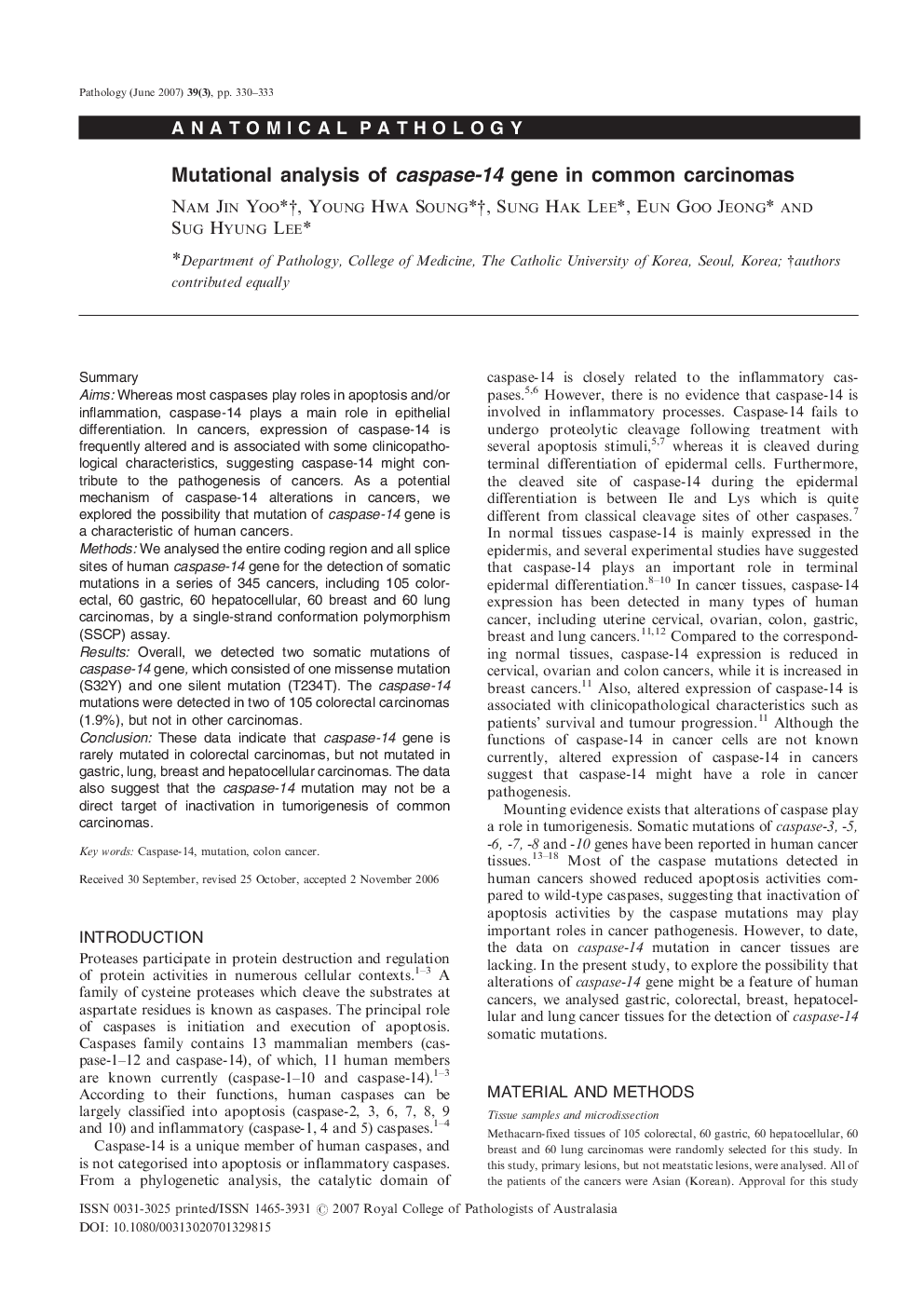| Article ID | Journal | Published Year | Pages | File Type |
|---|---|---|---|---|
| 106095 | Pathology | 2007 | 4 Pages |
SummaryAimsWhereas most caspases play roles in apoptosis and/or inflammation, caspase-14 plays a main role in epithelial differentiation. In cancers, expression of caspase-14 is frequently altered and is associated with some clinicopathological characteristics, suggesting caspase-14 might contribute to the pathogenesis of cancers. As a potential mechanism of caspase-14 alterations in cancers, we explored the possibility that mutation of caspase-14 gene is a characteristic of human cancers.MethodsWe analysed the entire coding region and all splice sites of human caspase-14 gene for the detection of somatic mutations in a series of 345 cancers, including 105 colorectal, 60 gastric, 60 hepatocellular, 60 breast and 60 lung carcinomas, by a single-strand conformation polymorphism (SSCP) assay.ResultsOverall, we detected two somatic mutations of caspase-14 gene, which consisted of one missense mutation (S32Y) and one silent mutation (T234T). The caspase-14 mutations were detected in two of 105 colorectal carcinomas (1.9%), but not in other carcinomas.ConclusionThese data indicate that caspase-14 gene is rarely mutated in colorectal carcinomas, but not mutated in gastric, lung, breast and hepatocellular carcinomas. The data also suggest that the caspase-14 mutation may not be a direct target of inactivation in tumorigenesis of common carcinomas.
